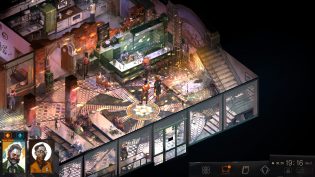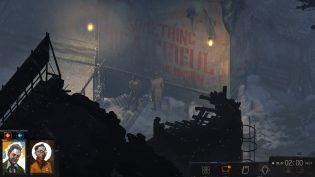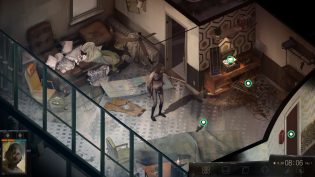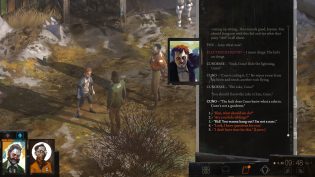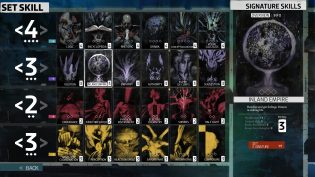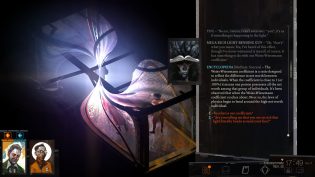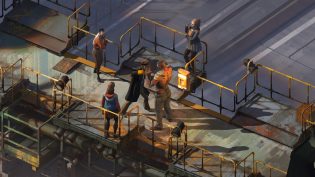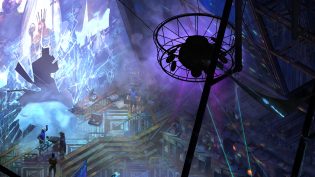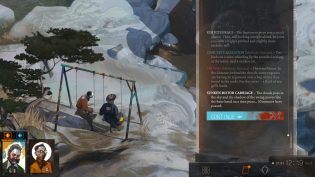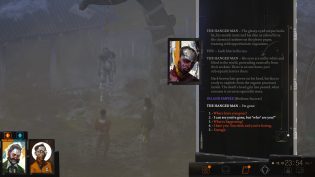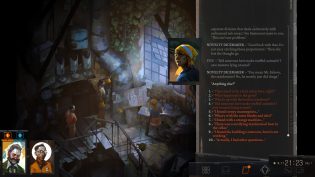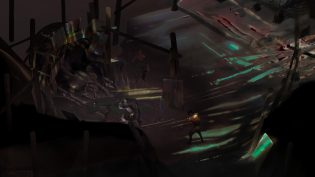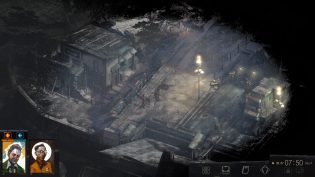I think pretty much anyone I know who loves good stories mentioned Disco Elysium to me at least once since it’s release a few months ago. By the time of me writing this, the game has received several awards for its storytelling and yet, I find it a bit hard to explain what Disco Elysium is. The comparisons with Planescape: Torment are unavoidable, for example, yet this game feels almost completely different to play. What I can say quite easily, however, is that Disco Elysium is a really good game and an unforgettable experience.
Still, let me at least try to explain how the game works. I suppose, the closest description I can think of would be – a story driven adventure RPG. Most of the time in this game you spend in the dialogue/interact side of the interface and that’s where the comparisons with Planescape are the strongest. The world of Disco Elysium is much smaller and there are less people to talk to in general, but every character you can talk to is a unique entity, with a name, a story and some goals/needs. In addition to the external characters, this game has you talking internally as well. And because of that, because of the fact that every single side of the main character’s personality can have a say in things, the dialogues can get very long. From Encyclopedia’s often unnecessary (but welcome, at least for me) tidbits, to Logic and Empathy sending mixed signals about how to act, going through dialogues in this game is a fun and unique experience.
Which is good, since, as mentioned, you spend most of the game time there. The game is set up as a detective investigation, so you may constantly find interesting things to do which may or may not relate to the investigation. Or they may just be a spontaneous desire of the main character that becomes a task in your journal. It’s quirky and weird, but without ever falling too far into “oooo, I’m so wacky!” territory, carefully balancing between serious and funny, logical and insane, depressing and hopeful. It’s not a game you should dive into when you’re exhausted or extremely busy with solving life problems, but even when you’re slightly distracted or tired, this game is written so well that it has a strong chance of sucking you in and not becoming confusing.
It’s not exactly without fault, of course, and the talks can sometimes be too much to read through in one go. But a bigger potential issue may arise with the skill checks. It’s actually quite simple and brilliant – without dedicated modes for actions like “combat”, all checks are performed in the interaction/dialogue UI, with the game clearly showing you which skill is being checked, what success percentage you have and what possible hidden checks you have failed/succeeded to affect the chance. When you click the skill check, the game does a dice roll and yes, that does mean that you can still fail a check with 80% success. The upside is that the game doesn’t treat any of these checks as fail-states (with some exceptions), and apart from letting you retry them later (not all of them), failing can lead to alternative solutions, new “thoughts” (passive perk-like bonuses you can “equip”) and unique dialogue.
A bigger potential annoyance, though, can lie with the fact that you need to run around the district all the time, with no means of quick travel. And there’s no auto-run (game actually tracks you running and mentions it in the dialogues), so you constantly double click. And also the highlight button (to show interactive parts of the scene) often needs to be pressed again because it stops working if you simply hold it. The loading screens between transitions can become jarring in some locations. And there are occasionally technical glitches and weird things, none of which, luckily, make the game worse than it is, but slightly more inconvenient nonetheless.
Most of the time, it succeeds at what it aims to do, sometimes not quite reaching the goal in an adequate way, sometimes creating unbelievably great moments that are unlikely to be forgotten when experienced. It is so focused too – it’s so rare to find a game, a story driven game at that, that feels as consistent as Disco Elysium. Even Planescape: Torment, for all its amazing storytelling, world building and unconventional usage of D&D concepts, felt confused at times. On the other hand, a title like Torment: Tides of Numenera, despite it’s creativity and “weirdness”, felt consistent only in its sterility. With Disco Elysium, though, you have an art style, a writing style, sound design and music style – all amazing on their own and yet all consistent and complementing each other perfectly. I suppose only the voice acting was a bit weak in this regard, but thankfully there’s not too much of it to spoil the experience and some of the VAs were fantastic.
If you have about 20 hours to spare on one of the greatest examples of videogame storytelling, you should play Disco Elysium. It has little annoyances, it doesn’t deliver on everything it sets out to do at the very beginning, it’s not perfect. But it’s amazing, unforgettable and enjoyable. And I loved playing it.


